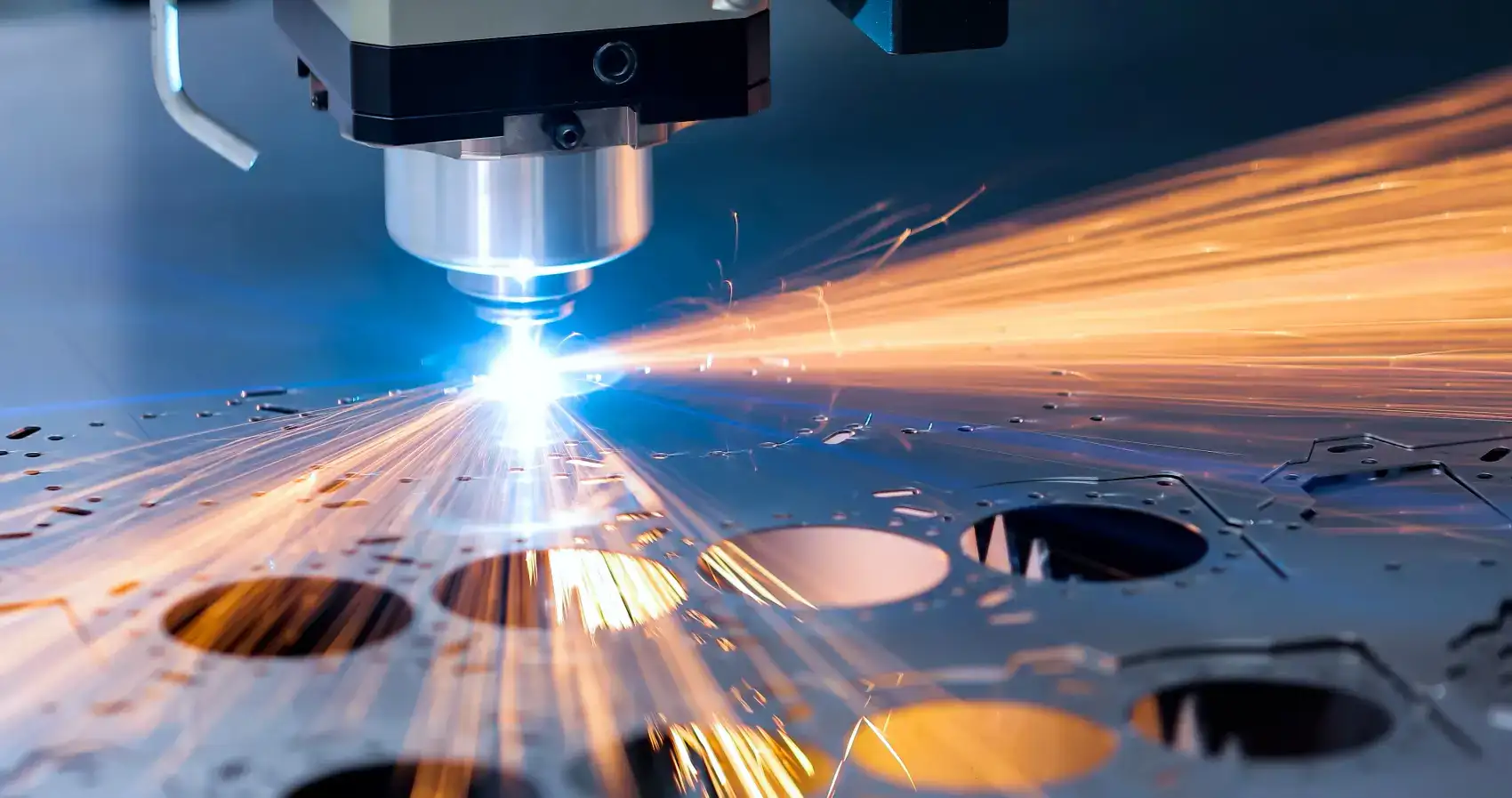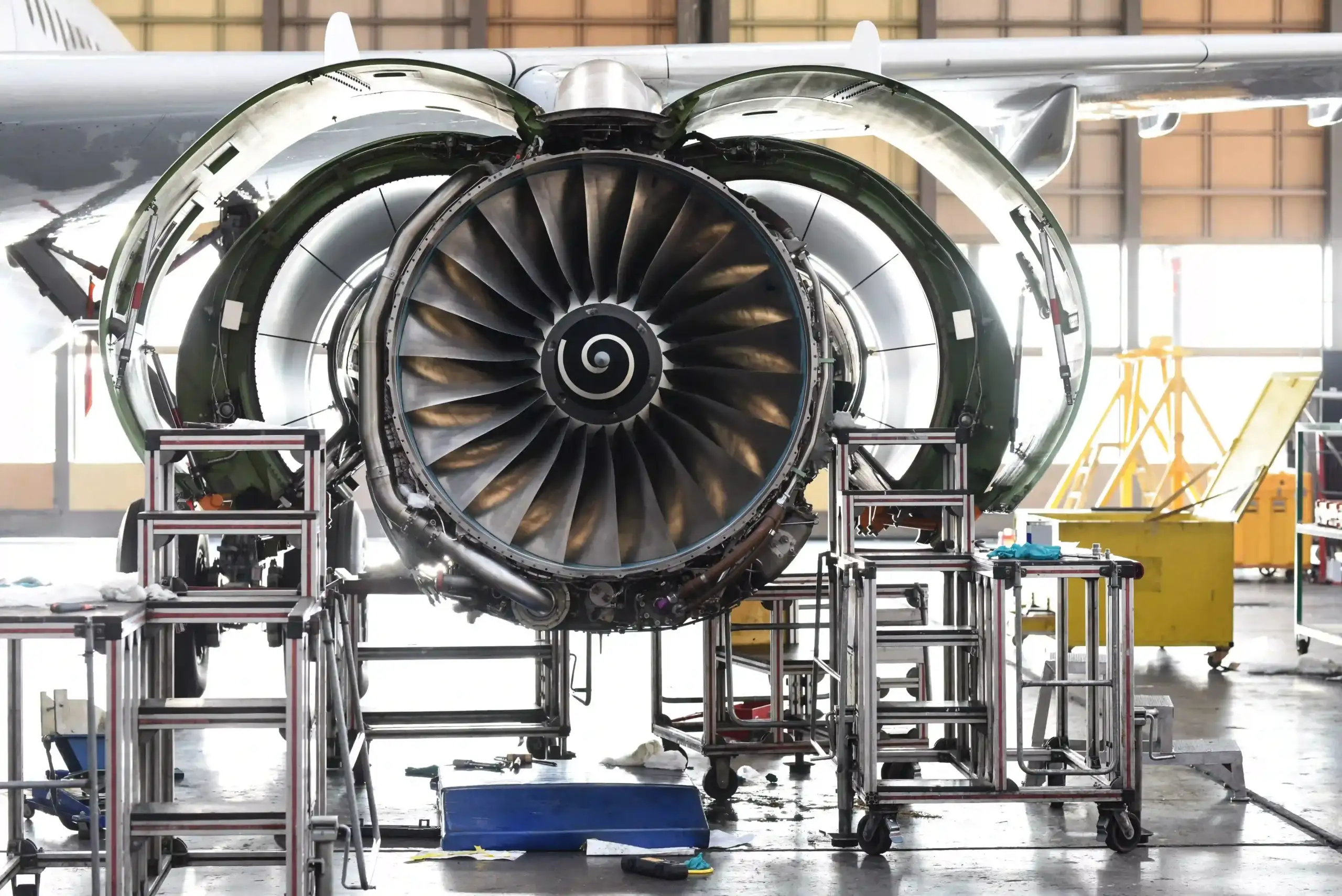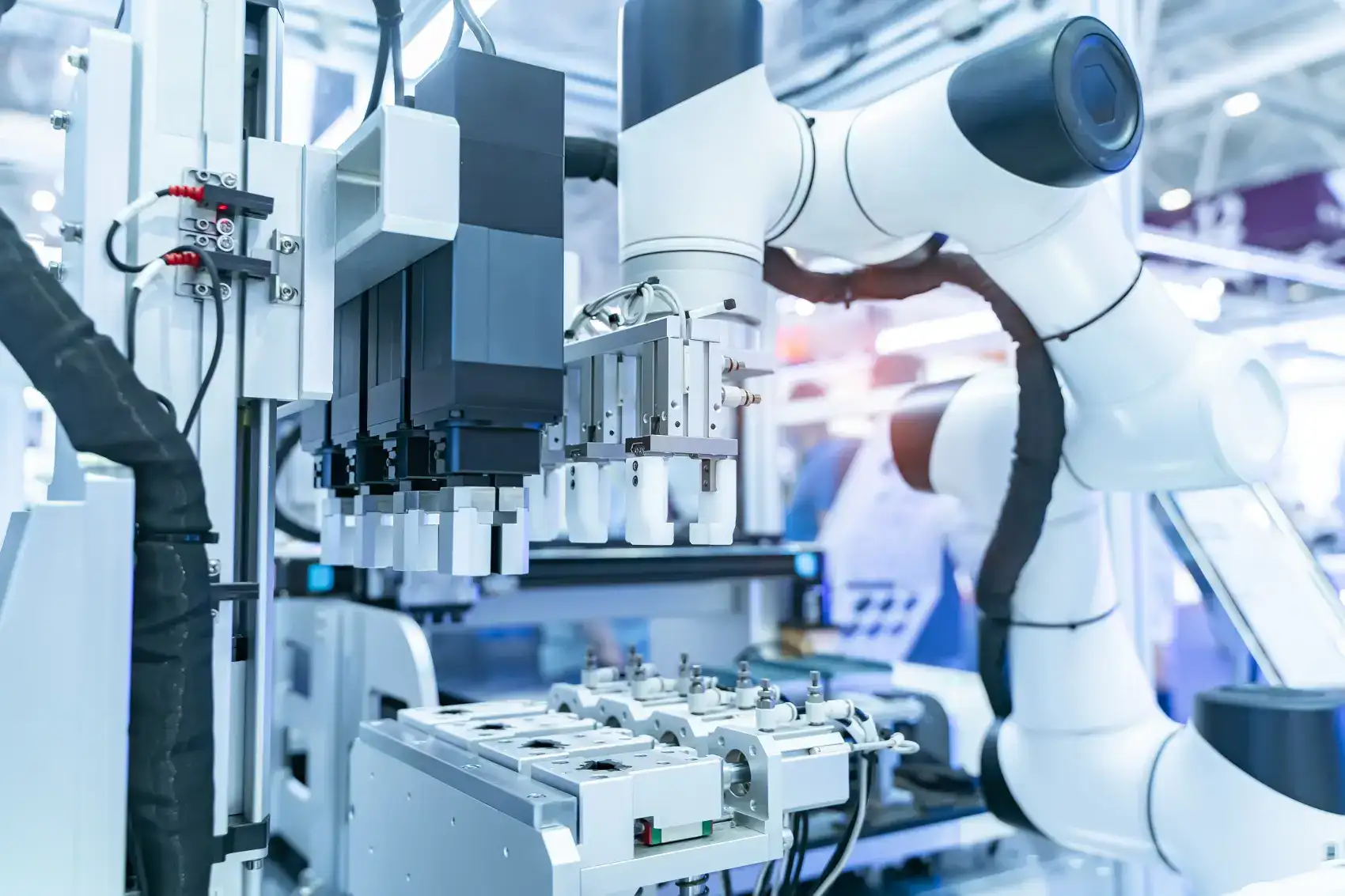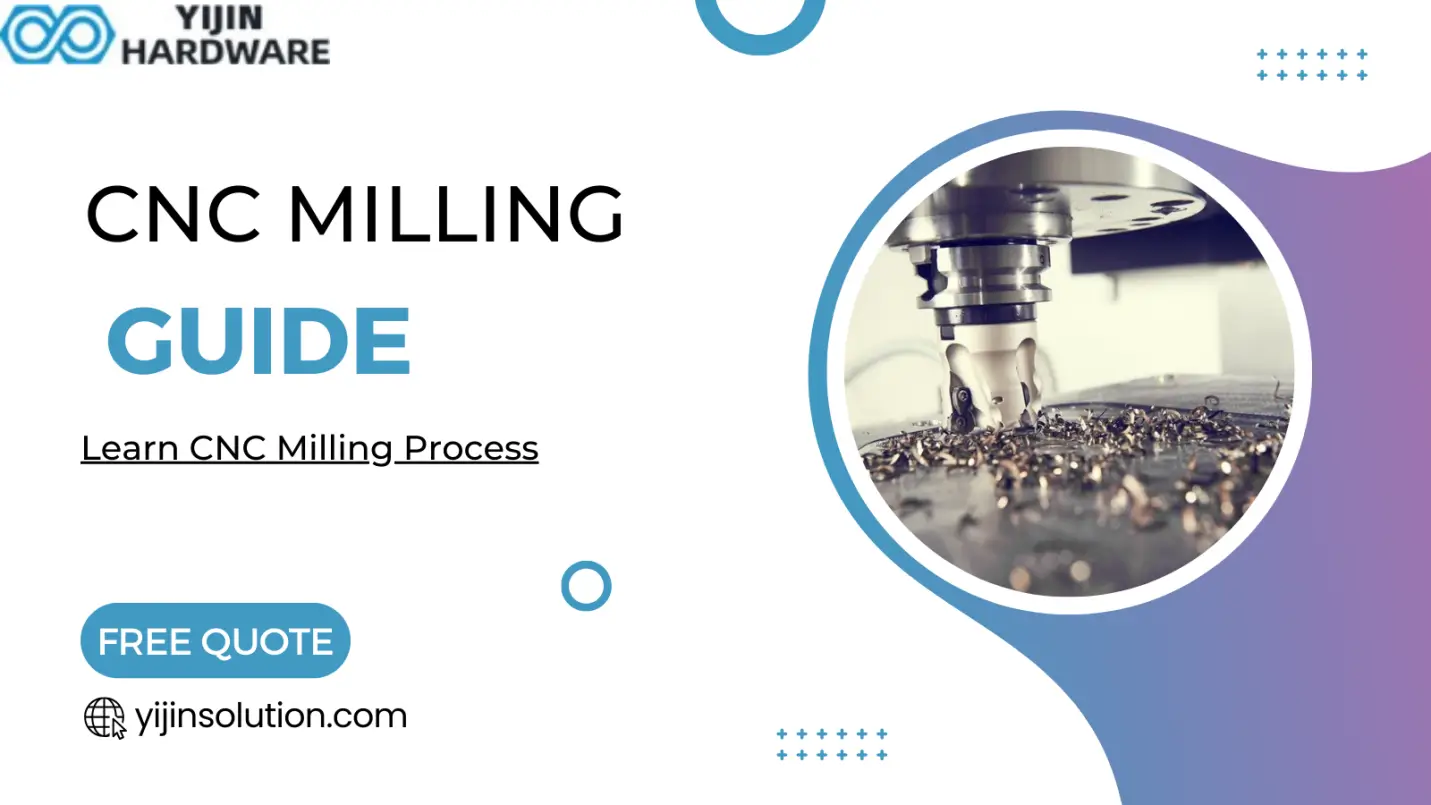What is the CNC Machining used for?

CNC machining is a computerized-control, automated manufacturing technique that involves custom-designed components. It utilizes equipment whose movement is controlled by pre-programmed codes and software. Modern manufacturing is crucial in industry. It makes products with great precision and accuracy.
Automated control of machine tools allows the making of intricate cnc components. They can be made from various materials, such as metals and plastics. This vital method has boosted productivity. It also lets us customize products and reduces human errors.
Read More: CNC Machining 101 for Beginners
Advantages of CNC Machining
The innovative CNC machining revolutionizes contemporary production, offering unparalleled efficiency and accuracy. Let us explore the key advantages of CNC machining. They make it a top method in industries.
- CNC machining offers greater accuracy and precision than manual operations. The component’s fabrication process is done according to the instructions of computers. It eliminates the chances of errors and ensures consistency of the final product.
- It allows high-speed production due to the minimal human interventions. It not only elevates productivity but also leads to fast turnaround times. CNC machining fundamentals and applications play a role across industries.
- The CNC machines employed in the machining process guarantee long-term performance. They can withstand prolonged use because of their high endurance. The manufacturing process can continue for 24 hours or even more without interruption.
- It allows the compatibility of various materials, including metal and plastic. So it can easily handle materials exhibiting varying and complex features. It facilitates the production of precise components. It produces high-quality, reliable, and efficient products. Its adaptability and performance drive progress innovation.
- It allows the production of components exhibiting 3D shapes, contours, and intricate designs. It can allow the creation of complex features and geometries. They are challenging to create by adopting manual manufacturing operations.
- CNC machining needs fewer workers. It can be run efficiently. This leads to lower labor costs. Thus, it helps reduce labor costs much higher than manual manufacturing techniques. It makes it possible to work with various materials. These materials range from metals to plastics, adding to their versatility in application.
- It requires negligible maintenance. The reason is that the CNC machines used for manufacturing components need low maintenance. It also avoids the need for experienced maintenance engineers. This cuts costs a lot. It increases efficient production by minimizing errors and reducing the need for labor.
Overall, the CNC machining process is cost-effective compared to other machining processes. It is economical due to lower labor costs. Also, it has repeatable, precise, and low-waste production.
Applications of CNC Machining in Manufacturing
CNC machining has widespread applications across various industrial sectors. In the modern era, it is an appreciated method for manufacturing parts. It makes parts for consumer electronics, aerospace, and medical. Let us briefly discuss the industrial applications of this automated method.
Consumer Electronics
CNC machining is used to make many consumer electronics. It also makes other intricate parts. These include connectors, buttons, casing, and a wide range of internal parts such as circuit board housings. It allows for making high-quality notches. They are precise and consistent. They are for tablets, laptops, and smartphones. It speeds up the growth of the consumer electronic industry.
Aerospace Industry

CNC machining contributes to the aerospace industry by manufacturing computer-controlled components. They include turbine blades, landing gear parts, and engine components. They also include structural elements. The parts show unmatched precision, reliability, and accuracy. It improves the part’s performance and safety. It meets quality standards, ensures strict tolerances, and advances the aerospace industry.
The application of CNC milling machine in the aerospace sector is very important. Safety and quality control are key factors to consider when manufacturing aerospace parts. Manufacturing companies use CNC machining for satellites, spacecraft, and airplanes. We craft parts like surfaces, structural elements, and engine parts. These parts are of high precision and reliability using CNC machines.
Also Read:
Marine Industry
CNC machining plays an important role in the marine industry. It manufactures highly durable and precise parts for offshore structures, boats, and ships. It efficiently makes many marine parts like navigation tools, rudders, shafts, and propellers. It ensures their accuracy to keep them safe and efficient. Thus, they can handle extreme and harsh marine environments. This boosts their performance in the marine sector.
CNC machines produce propellers, machinery components, and navigation devices. The marine industry needs corrosion-resistant parts. We produce these parts with high precision using corrosion materials. For example, CNC machining is essential for creating.
Medical Industry
CNC machining makes parts for medical devices. It is used in the healthcare sector. These mainly involve diagnostic machines, surgical instruments, prosthetics, implants, and other medical parts. CNC technology meets the demands of medical applications, such as high quality, performance, and safety. These components make medical treatments better. They also bring advances to the medical industry.
Defense Industry
CNC machining is used in the defense industry. It makes precise and reliable military gear. The technique makes defense-related parts, like armor plating and weapons, automatically. The military equipment is very durable, performs well, and is reliable. This is due to the tough quality standards and tight tolerances.
Oil & Gas Sector
CNC machining is a reliable technique for producing various parts for the oil and gas sectors. These include pipeline components, connectors, pumps, valves, and other parts. These are used for different processes, such as refining, extraction, drilling, and exploration. The components are very precise and accurate.
CNC machining creates components for drilling, valves, and pipelines. These components need to withstand pressure and corrosion. We use these parts under extreme temperatures and moisture during oil exploration. They can handle tough conditions and work well in the oil and gas industry.
Energy Sector
CNC machining is widely used in energy sectors. It creates strong parts. These include renewable energy equipment, gears, generator parts, and turbine blades. These parts are for distribution, transmission, and power generation systems. They optimize energy production. This helps energy systems work better. So, it advances infrastructure.
Furniture Sector
CNC machining is key in the furniture industry. It is crucial for making tough, high-quality furniture parts. It creates furniture parts, like custom fittings and joinery. It also makes intricate carvings and decorative panels. It helps make furniture that is high-function and beautiful. It ensures innovation in furniture. It allows rapid prototyping and customization of furniture designs.
Telecommunications
CNC machining plays a role, in the telecommunications industry crafting components essential for telecom infrastructure and devices. Here are some specific examples;
Antennas
They rely on CNC machining for parts such as mounts, brackets and radomes requiring dimensions and tolerances to optimize performance and signal reception in communication systems.
Waveguide components
Waveguide components are crucial in microwave and radio frequency transmission systems. CNC machining is utilized to create these parts with dimensions and finishes to minimize signal loss and ensure wave transmission.
Enclosures and housings
They are safeguard components of telecommunications equipment like routers, switches and modems from factors. Crafted with geometries for functionality these enclosures are made using CNC machining to ensure a reliable performance.
Heat sinks
They play a role, in high power applications by maintaining the reliability and efficiency of telecommunications equipment through heat dissipation from electronics. With fin designs and precise tolerances required CNC machining is employed to produce these components.
CNC machining holds importance in the telecommunications sector by enabling the production of high quality parts. These components are essential, for ensuring that their infrastructure devices and networks function smoothly.
Other CNC Machining Use Cases
Prototyping
Prototyping is creating a preliminary final product model. It comes before full-scale manufacturing. The preliminary model is designated as a prototype, the mock-up of the final product. It helps the designers to test the product. They check its performance, functionality, and design for flaws or to validate ideas. Later, it is improved to ensure the final components’ high accuracy and performance.
Wire EDM
Wire EDM, or Wire Electrical Discharge Machining, is a process. It involves cutting the metal into desired shapes. This is done using a charged thin wire in the presence of fluid. The process passes the charged thin wire through the workpiece. Then it is submerged in dielectric fluid. The wire produces an electric spark as it passes the workpiece and cuts it down to the desired shape. It allows precision, versatility, and a fine surface finish for the final part.
Water Jet
A Water Jet is a type of machining process that uses a water jet to remove the required material from a workpiece. In other words, a water jet is fired at the workpiece. It is under controlled conditions. The pressure from the water jet erodes the material of the workpiece and shapes it into the desired structure. Water pressure is usually 60K pounds per square, enough to erode undesired material. It is ideal for making complex shapes. It also cuts with high precision and an excellent surface finish.
Summing Up
From the above, we conclude that CNC machining is dominant. It is used in many industries. It contributes unbeatably to consumer electronics and furniture. It makes complex and precise components that are durable and functional. It uses many machining technologies. These include prototyping, 3D printing, wire EDM, and water jet. They have brought countless advances to the industry by making challenging parts.
 Call Us Today! (+86) 188-2253-7569
Call Us Today! (+86) 188-2253-7569







